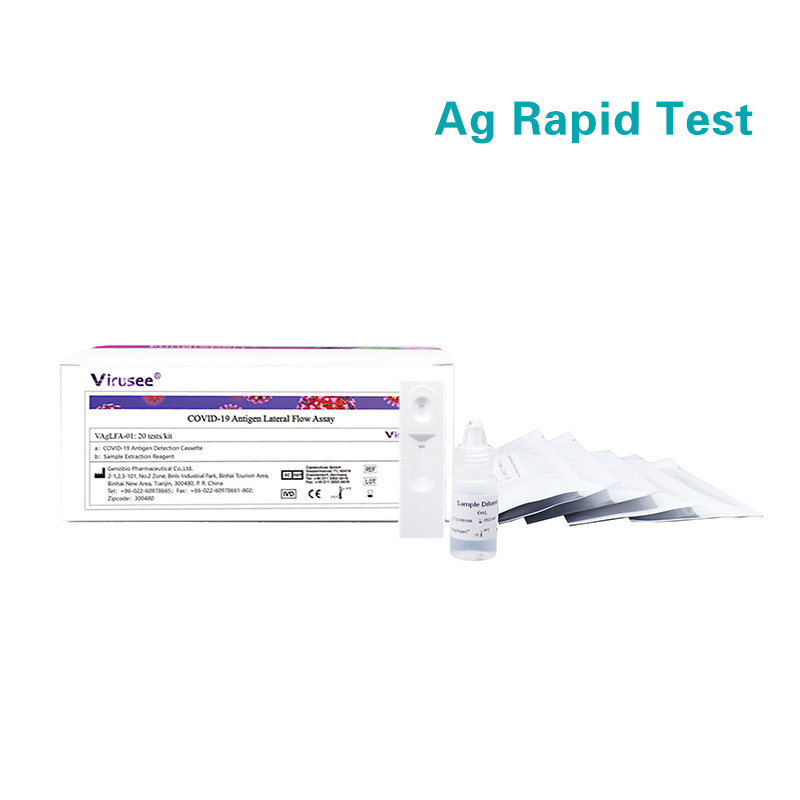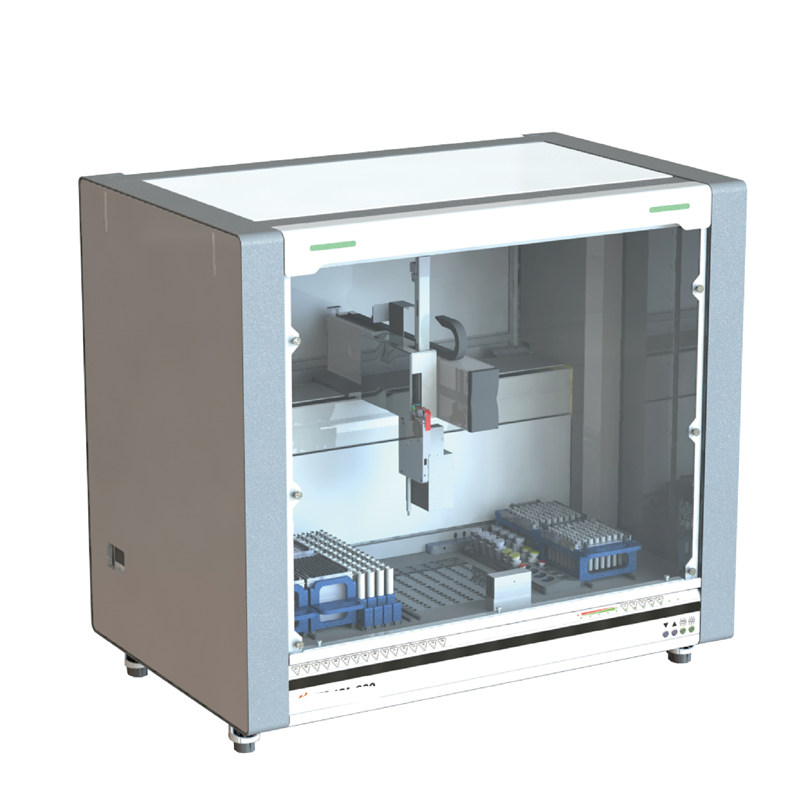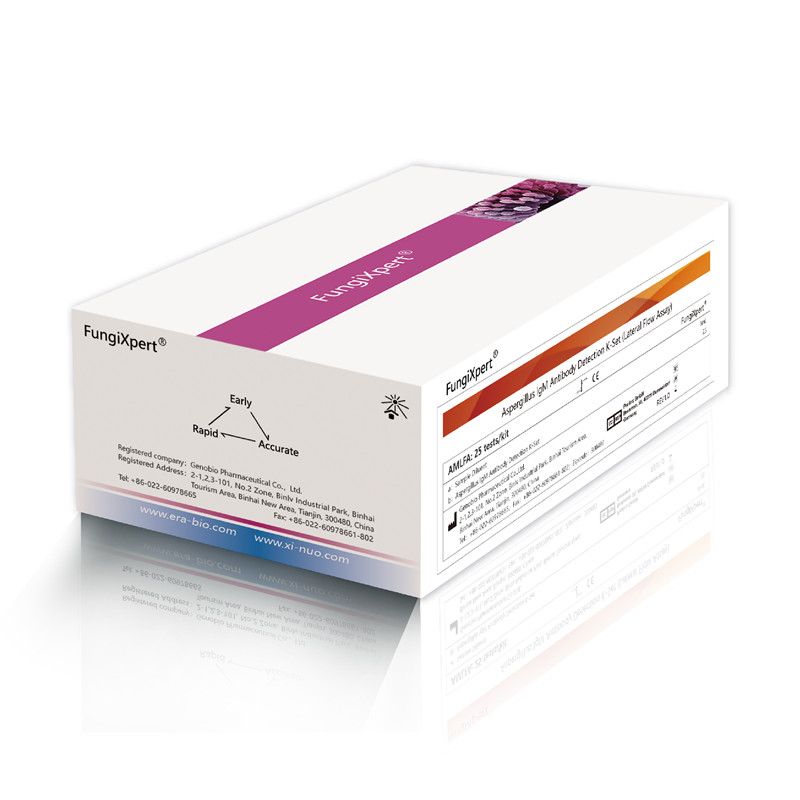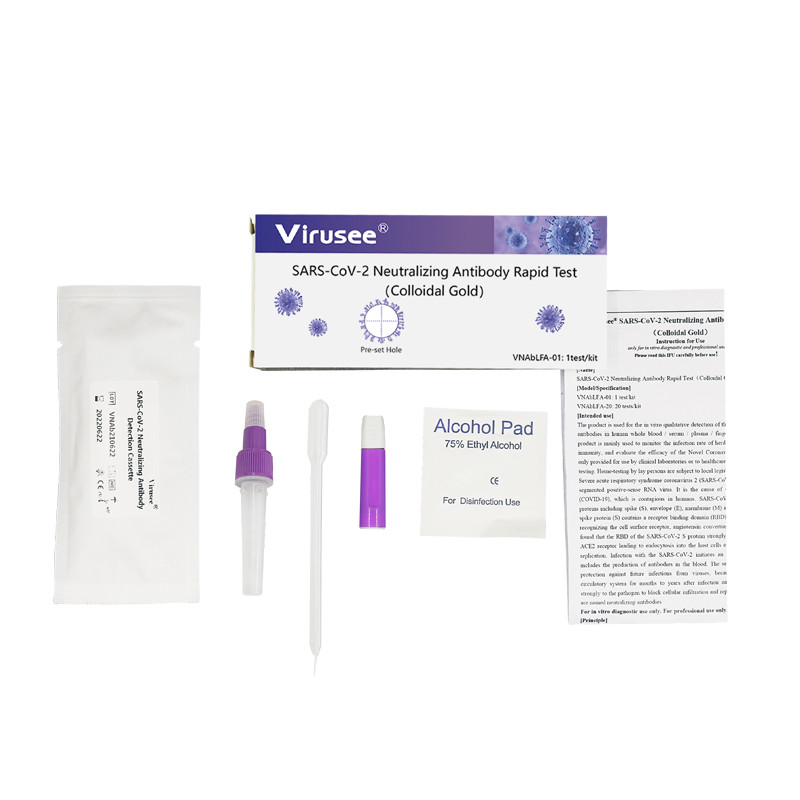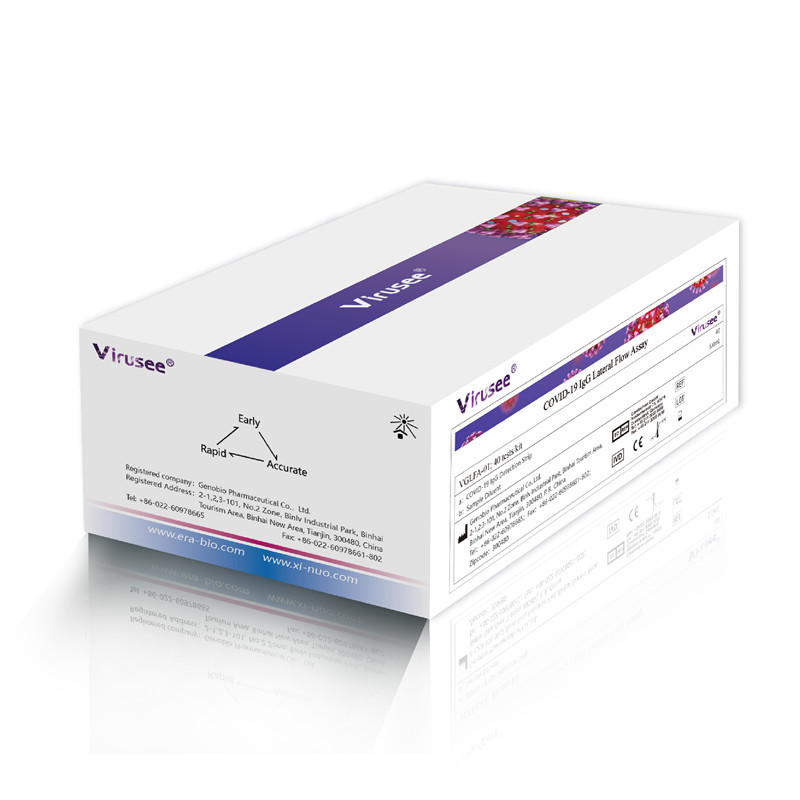Fast delivery SARS-CoV-2 PCR test - Mucorales Molecular Detection Kit (Real-time PCR) – Genobio
Fast delivery SARS-CoV-2 PCR test - Mucorales Molecular Detection Kit (Real-time PCR) – Genobio Detail:
Product Introduction
FungiXpert® Mucorales Molecular Detection Kit (Real-time PCR) is applied to qualitative detection of Mucorales DNA in BALF, sputum and serum samples. It can be used auxiliary diagnosis of critically ill patients suspected of Mucor mycosis and hospitalized patients with low immunity.
At present, the commonly used clinical detection methods of Mucorales are culture and microscopic examination. Mucorales exists in soil, feces, grasses and air. It grows well under the conditions of high temperature, high humidity and poor ventilation. Mucor mycosis is a kind of conditional pathogenic disease caused by Mucorales. Most patients are infected by inhaling spores in the air. The lungs, sinuses and skin are the most common sites of infection. The prognosis of deep infection of Mucorales is poor and the mortality is high. Diabetes, especially diabetic ketoacidosis, glucocorticoid therapy, hematological malignancies, hematopoietic stem cells and solid organ transplantation patients are susceptible.
Characteristics
|
Name |
Mucorales Molecular Detection Kit (Real-time PCR) |
|
Method |
Real-time PCR |
|
Sample type |
Sputum, BAL fluid, Serum |
|
Specification |
20 tests/kit, 50 tests/kit |
|
Detection time |
2 h |
|
Detection objects |
Mucorales spp. |
|
Stability |
Stable for 12 months at -20°C |
|
Sensitivity |
100% |
|
Specificity |
99% |

About Mucormycosis
Mucormycosis is a serious but rare fungal infection caused by a group of molds called mucormycetes. These molds live throughout the environment. Mucormycosis mainly affects people who have health problems or take medicines that lower the body’s ability to fight germs and sickness. It most commonly affects the sinuses or the lungs after inhaling fungal spores from the air. It can also occur on the skin after a cut, burn, or other type of skin injury. The true incidence of mucormycosis is not known and probably underestimated because of difficulties in antemortem diagnosis.
Infections due to Mucorales (i.e., mucormycoses) are more aggressive, acute-onset, rapidly progressive, and commonly fatal angioinvasive fungal infections. These molds are supposedly ubiquitous in nature and widely found on organic substrates. Approximately half of all mucormycosis cases are caused by Rhizopus spp. Risk factors associated with mucormycosis include prolonged neutropenia and use of corticosteroids, hematological malignancies, aplastic anemia, myelodysplastic syndromes, solid organ or hematopoietic stem cell transplantation, human immunodeficiency virus infection, diabetic and metabolic acidosis, iron overload, deferoxamine use, burns, wounds, malnutrition, extremes of age, and intravenous drug abuse.
Advantage
- Flexible
The sample type is optional between sputum and BALF - Accurate
1.The reagent is stored in PCR tube in the form of freeze-dried powder to reduce the possibility of contamination
2.Strictly control the experiment quality
3.Dynamic monitoring results reflect the degree of infection
4.High sensitivity and specificity
Order Information
|
Model |
Description |
Product code |
|
FMPCR-20 |
20 tests/kit |
FMPCR-20 |
|
FMPCR-50 |
50 tests/kit |
FMPCR-50 |
Product detail pictures:
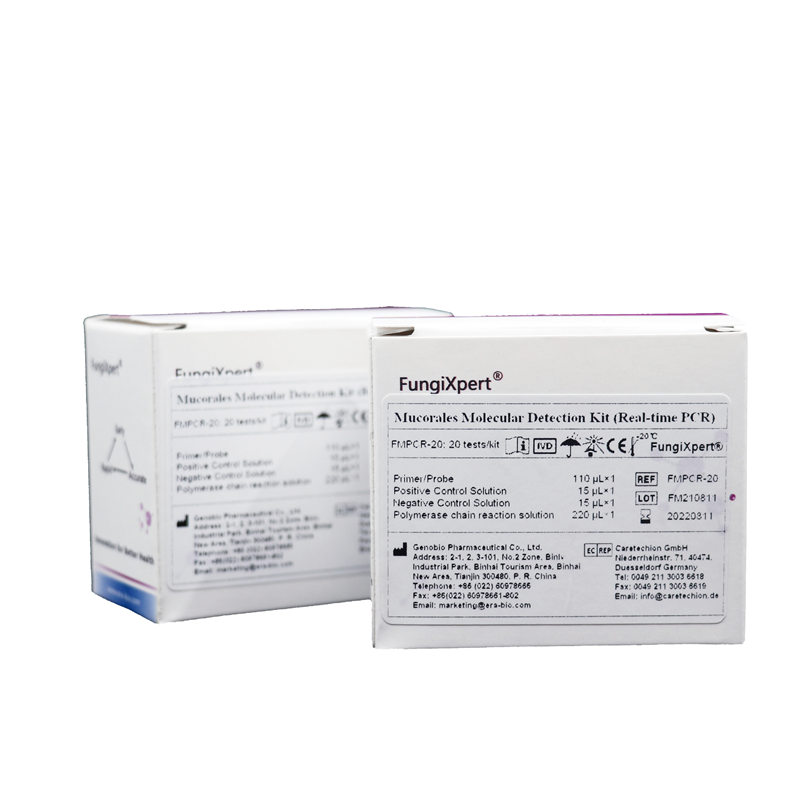
Related Product Guide:
Fast delivery SARS-CoV-2 PCR test - Mucorales Molecular Detection Kit (Real-time PCR) – Genobio , The product will supply to all over the world, such as: , , ,

